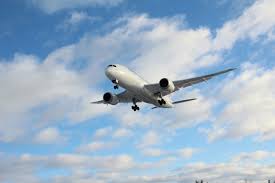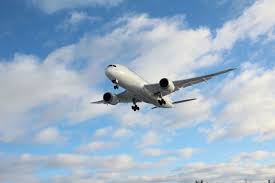
At an annual meeting next week, global airline executives will face a number of issues due to geopolitical concerns, aircraft shortages, and aggressive environmental standards. Softening prices further compound the carriers' precarious situation.
The world's biggest international hub, Dubai, will host the annual conference of the powerful International Air Transport Association (IATA), which represents over 300 airlines and over 80% of worldwide air traffic, from June 2–4.
According to aviation executives, the epidemic that destroyed airline financial sheets at the beginning of the decade and grounded the majority of the world's fleet is now mostly behind us.
According to IATA, the sector generated a profit again in 2023, and early this year, air passenger volume surpassed 2019's record levels.
Aviation data source OAG estimates that in the second quarter of 2024, global airline capacity will be 4% greater than in 2019.
Airlines have cautioned that when networks expand or reopen, increased costs and competition would put pressure on yields, or the average fare a customer pays to go one mile.
Airlines are operating longer routes as a result of conflicts and geopolitical unrest, and concerns about the aviation sector's ability to meet the IATA's 2021 goal of net-zero carbon emissions by 2050 are becoming more prevalent.
This ship is a freight carrier that travels the globe carrying products, frequently via the Red Sea's Suez Canal.
When asked if aviation will achieve the aim, Airbus CEO Guillaume Faury responded, "The jury is out and there is a lot to be done," during the VivaTech conference last week.
There is a fading of the post-COVID "travel at all costs" boom, as seen by the beginning of a plateau or decline in airfares across Europe and Asia.
Luis Gallego, the CEO of IAG (ICAG.L), the company that owns British Airways, stated in the company's annual report that "the year ahead could be challenging for aviation" opens new tab.
After recording a record profit for the second year in a row, Singapore Airlines announced last month that passenger yields were decreasing.
Regarding the worldwide industry, OAG analyst John Grant described it as "a mixed bag." Although the results in 2023 and 2024 were remarkable, he claimed that a softening was now taking place.
As one of several organisations that created the groundwork for non-military flying after World War II, IATA was established in 1945. Originally tasked with determining prices, it is today most recognised for its outspoken support of aviation's place in a global economy.
Environmental critics claim that the industry's expansion contradicts attempts to reduce emissions and that its goals, which are mostly dependent on sustainable aviation fuel, fall short of what is necessary.
This month's turbulence on Singapore Airlines and Qatar Airways, which resulted in several injuries to passengers and crew, has drawn attention to cabin safety and the connection between turbulence and climate change.
The subject of passenger rights is also expected to resurface at the IATA gathering as some nations want to imitate the European Union's compensation programme. While passenger organisations claim some airlines don't pay on time, airlines claim the regulations may have an impact on safety.
The event takes place during a new era of competitiveness and growth in the Gulf, which is home to the host airline Emirates and its smaller competitor Qatar Airways.
Saudi Arabia and the United Arab Emirates have declared plans to build new mega-airports, and Saudi and Indian airlines are adding more capacity.
The largest long-haul airline in the world, Emirates, is hosting the IATA convention, which is also the first significant airline assembly since Boeing was immersed in a quality and corporate crisis following a mid-air panel explosion in January.
U.S. regulators are looking into Boeing, and the company may face legal punishment for earlier activities in addition to declining production of the 737 MAX, which is its best-selling aircraft.
In addition to struggling to fulfil delivery commitments, Airbus also has a large number of narrow-body aircraft in service that are continually delayed in receiving Pratt & Whitney engine maintenance.
This month, Badr Mohammed Al Meer, the CEO of Qatar Airways, stated that Boeing and Airbus should exert greater pressure on suppliers to shorten delays.
(Source:www.reuters.com)
The world's biggest international hub, Dubai, will host the annual conference of the powerful International Air Transport Association (IATA), which represents over 300 airlines and over 80% of worldwide air traffic, from June 2–4.
According to aviation executives, the epidemic that destroyed airline financial sheets at the beginning of the decade and grounded the majority of the world's fleet is now mostly behind us.
According to IATA, the sector generated a profit again in 2023, and early this year, air passenger volume surpassed 2019's record levels.
Aviation data source OAG estimates that in the second quarter of 2024, global airline capacity will be 4% greater than in 2019.
Airlines have cautioned that when networks expand or reopen, increased costs and competition would put pressure on yields, or the average fare a customer pays to go one mile.
Airlines are operating longer routes as a result of conflicts and geopolitical unrest, and concerns about the aviation sector's ability to meet the IATA's 2021 goal of net-zero carbon emissions by 2050 are becoming more prevalent.
This ship is a freight carrier that travels the globe carrying products, frequently via the Red Sea's Suez Canal.
When asked if aviation will achieve the aim, Airbus CEO Guillaume Faury responded, "The jury is out and there is a lot to be done," during the VivaTech conference last week.
There is a fading of the post-COVID "travel at all costs" boom, as seen by the beginning of a plateau or decline in airfares across Europe and Asia.
Luis Gallego, the CEO of IAG (ICAG.L), the company that owns British Airways, stated in the company's annual report that "the year ahead could be challenging for aviation" opens new tab.
After recording a record profit for the second year in a row, Singapore Airlines announced last month that passenger yields were decreasing.
Regarding the worldwide industry, OAG analyst John Grant described it as "a mixed bag." Although the results in 2023 and 2024 were remarkable, he claimed that a softening was now taking place.
As one of several organisations that created the groundwork for non-military flying after World War II, IATA was established in 1945. Originally tasked with determining prices, it is today most recognised for its outspoken support of aviation's place in a global economy.
Environmental critics claim that the industry's expansion contradicts attempts to reduce emissions and that its goals, which are mostly dependent on sustainable aviation fuel, fall short of what is necessary.
This month's turbulence on Singapore Airlines and Qatar Airways, which resulted in several injuries to passengers and crew, has drawn attention to cabin safety and the connection between turbulence and climate change.
The subject of passenger rights is also expected to resurface at the IATA gathering as some nations want to imitate the European Union's compensation programme. While passenger organisations claim some airlines don't pay on time, airlines claim the regulations may have an impact on safety.
The event takes place during a new era of competitiveness and growth in the Gulf, which is home to the host airline Emirates and its smaller competitor Qatar Airways.
Saudi Arabia and the United Arab Emirates have declared plans to build new mega-airports, and Saudi and Indian airlines are adding more capacity.
The largest long-haul airline in the world, Emirates, is hosting the IATA convention, which is also the first significant airline assembly since Boeing was immersed in a quality and corporate crisis following a mid-air panel explosion in January.
U.S. regulators are looking into Boeing, and the company may face legal punishment for earlier activities in addition to declining production of the 737 MAX, which is its best-selling aircraft.
In addition to struggling to fulfil delivery commitments, Airbus also has a large number of narrow-body aircraft in service that are continually delayed in receiving Pratt & Whitney engine maintenance.
This month, Badr Mohammed Al Meer, the CEO of Qatar Airways, stated that Boeing and Airbus should exert greater pressure on suppliers to shorten delays.
(Source:www.reuters.com)














